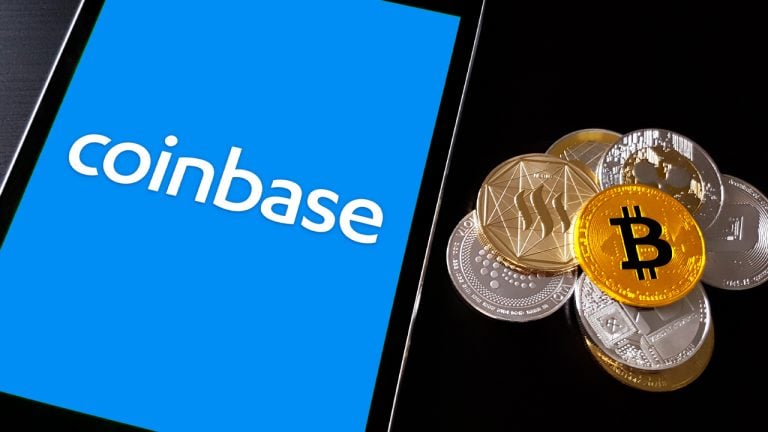 Ripple has escalated its legal battle with the U.S. Securities and Exchange Commission (SEC), filing a cross-appeal to challenge unresolved issues around XRP sales. This comes after the SEC sought to overturn parts of the rulings that cleared Ripple’s retail XRP transactions from securities violations. Ripple’s latest move aims to ensure the SEC’s arguments on […]
Ripple has escalated its legal battle with the U.S. Securities and Exchange Commission (SEC), filing a cross-appeal to challenge unresolved issues around XRP sales. This comes after the SEC sought to overturn parts of the rulings that cleared Ripple’s retail XRP transactions from securities violations. Ripple’s latest move aims to ensure the SEC’s arguments on […] In a recent legal challenge, Coinbase has filed a brief with the Southern District of New York, seeking permission for an interlocutory appeal against the U.S. Securities and Exchange Commission’s expansive interpretation of what constitutes an “investment contract” in digital asset transactions. This pivotal case could set significant precedents for the cryptocurrency industry in the […]
In a recent legal challenge, Coinbase has filed a brief with the Southern District of New York, seeking permission for an interlocutory appeal against the U.S. Securities and Exchange Commission’s expansive interpretation of what constitutes an “investment contract” in digital asset transactions. This pivotal case could set significant precedents for the cryptocurrency industry in the […]
Top US crypto exchange Coinbase is looking to file an interlocutory appeal in its lawsuit with the U.S. Securities and Exchange Commission (SEC) regarding the definition of an “investment contract.” In a new thread, Coinbase chief legal officer Paul Grewal says that the crypto exchange is filing an interlocutory appeal because they and the SEC […]
The post Coinbase Seeking To File Interlocutory Appeal in SEC Lawsuit on ‘Investment Contract’ Definition appeared first on The Daily Hodl.
 Montana introduced an amicus curiae in the case of the SEC vs. Kraken, a US-based crypto exchange, criticizing the “regulatory power grab” of the institution. Montana, supported by seven other states, affirms that crypto assets are not automatically securities and that the SEC’s expansive concept of “investment contract” might preempt state legislation. Montana and Seven […]
Montana introduced an amicus curiae in the case of the SEC vs. Kraken, a US-based crypto exchange, criticizing the “regulatory power grab” of the institution. Montana, supported by seven other states, affirms that crypto assets are not automatically securities and that the SEC’s expansive concept of “investment contract” might preempt state legislation. Montana and Seven […]
Coinbase says the SEC’s definition of an investment contract isn’t in line with U.S. securities laws.
The United States Securities and Exchange Commission overstepped its authority when it classified Coinbase-listed cryptocurrencies as securities, the exchange has argued in its final bid to dismiss a lawsuit by the securities regulator.
In an Oct. 24 filing in a New York District Court, Coinbase chastised the SEC, claiming its definition for what qualifies as a security was too wide and contested that the cryptocurrencies the exchange lists are not under the regulator’s purview.
“The SEC’s authority is limited to securities transactions. Not every parting of capital with a hope of gain qualifies, and trades over Coinbase are only securities transactions if they involve ‘investment contracts.’ The transactions at issue here do not.”
Coinbase claimed the SEC has undertaken a “radical expansion of its own authority” and claimed jurisdiction “over essentially all investment activity,” which only Congress is entitled to do under the major questions doctrine.
In an Oct. 24 X post, Coinbase chief legal officer Paul Grewal echoed the claims, saying the SEC’s definitions have “no limiting function at all.”
By arguing that any purchase in which the buyer hopes for an increase in value constitutes an investment contract-and therefore a security-the SEC is attempting a radical expansion of its own authority. Only Congress can do that as the major questions doctrine makes clear. 2/3
— paulgrewal.eth (@iampaulgrewal) October 24, 2023
Coinbase’s recent filing comes in response to the SEC’s Oct. 3 rebuttal where it asked the court to reject Coinbase’s dismissal motion, iterating its belief that various cryptocurrencies Coinbase listed were investment contracts under the Howey test.
Related: Securities regulators oppose special treatment of crypto in Coinbase case
The SEC sued Coinbase on June 6, claiming the exchange violated U.S. securities laws by listing several tokens it considers securities and not registering with the regulator.
Coinbase filed the motion for judgment on June 29 arguing the SEC was abusing its power and violating Coinbase’s due process rights.
Judge Katherine Polk Failla, who oversees the case, may ask Coinbase and the SEC to appear in court for oral arguments and then issue judgment on the case, dismiss it, or move for it to be heard in front of a jury.
Magazine: Hall of Flame: Crypto lawyer Irina Heaver on death threats, lawsuit predictions

The SEC said Green United’s operation was a fraud and the community was quick to quell fears of the SEC classing crypto mining as a security in the suit.
Software and crypto mining equipment offered by the Utah-based Green United LLC was part of an $18 million "fraudulent scheme" that never mined the crypto it said it would, according to allegations by the United States Securities and Exchange Commission (SEC).
The regulator filed a complaint in a Utah District Court on Mar. 3 against Green United, its founder, Wright Thurston, and a contracted promotor Kristoffer Krohn.
It alleges the company and the two representatives fraudulently offered securities between April 2018 and December 2022 by selling investments in $3,000 “Green Boxes” and “Green nodes” purported to mine the GREEN token on the “Green Blockchain.”
Investors were allegedly told the firm was to develop the Green Blockchain to create a “public global decentralized power grid” and the GREEN token would increase in value based on its efforts with returns of up to 50% a month.
However, the SEC claimed the hardware sold didn’t mine GREEN as it was an Ethereum-based ERC-20 token that could not be mined and the Green Blockchain didn’t exist.
It added the GREEN token was created “several months” after the first hardware sales to investors and was periodically distributed to “create the appearance of a successful mining operation.”
Instead the real scheme, according to the SEC, was using the funds to buy S9 Antminers — Bitcoin (BTC) mining rigs — which were passed off as the Green “boxes” and “nodes” to investors. The firm mined Bitcoin, not GREEN tokens, which the investors “did not receive.”
Meanwhile, the crypto community on Twitter has hosed down one interpretation of the SEC complaint, which suggests that the SEC is going after crypto miners arguing that selling miners or offering hosting for them is a securities investment contract.
The take came from a Mar. 6 tweet from pseudonymous lawyer “MetaLawMan.”
However, crypto advocate and investment advisor, Timothy Peterson, argued the interpretation was a “bad take” adding the case doesn’t “target mining in general.”
Somewhat of a bad take; the SEC's case does not target mining in general, but a specific ASIC that was supposed to mine an ERC-token but instead mined #bitcoin for the ASIC sellers. Alleged fraud. Agree the "investment contract" application to this case is a stretch. But the #SEC… https://t.co/KK5cVqFCAi
— Timothy Peterson, CFA CAIA (@nsquaredcrypto) March 6, 2023
“The SEC is not saying ‘all sales of mining equipment is now a security,’” Peterson clarified.
Related: Lawmakers should check the SEC’s wartime consigliere with legislation
Another crypto commentator, Dennis Porter, CEO of the Bitcoin advocacy group the Satoshi Action Fund, tweeted that “the SEC is not coming after mining” and it “did not classify hosting as a security” and said Green United’s operation was “a scam disguised as mining.”
Please see official documents here explaining what was actually happening.
— Dennis Porter (@Dennis_Porter_) March 6, 2023
A scam disguised as mining. pic.twitter.com/1pUMk1M5NM
The SEC has asked for a court order to require Thurston, Krohn and Green United to cease operations, seeks civil penalties for securities law violations and repay the $18 million in allegedly ill-gotten gains.

Ripple CEO Brad Garlinghouse said the firm's XRP lawsuit could come to an end within "single-digit months."
Ripple CEO Brad Garlinghouse expects the firm’s long-running dispute with the Securities Exchange Commission (SEC) will be finalized within “single-digit months” and remains confident in securing a favorable outcome.
Speaking to CNBC on Jan. 18 at the World Economic Forum in Davos, Switzerland, Garlinghouse said the verdict could come as soon as June this year now that both parties have “fully filled and fully briefed” their arguments before the U.S. District Court:
“We expect a decision from a judge certainly in 2023. You don’t really have control over when a judge makes their decisions. But I’m optimistic that sometime in the coming single digit months we’ll have closure there.”
While Garlinghouse and investors believe the facts, law and the court will ultimately side with Ripple, the Ripple CEO also took the opportunity to ridicule the SEC’s “embarrassing” behavior displayed throughout the lawsuit, noting:
“The SEC’s behavior in some of it has been embarrassing as a U.S. citizen. Just some of the things that have been happening, like you’ve got to be kidding."
Garlinghouse also argued the firm was betrayed by the regulator, as it filed the lawsuit despite their efforts to meet with them on three separate occasions seeking regulatory clarity:
“Not once did they say to me we think XRP may be a security. So to later go back and say hey the whole time we thought XRP was a security we just didn’t tell you… that doesn’t feel like a genuine partnership between public sector and private sector.”
While noting that the outcome of the case also has huge implications for the cryptocurrency industry, Garlinghouse reiterated that Ripple would only settle if it was made clear that XRP is not a security.
However, “the SEC and Gary Gensler has very outwardly said he views almost all crypto as a security” Garlinghouse said, “so that leaves very little space in the Venn diagram for settlement,” he added.

Garlinghouse added that the U.S. SEC should take note from some of the more crypto-friendly countries who are piecing together more “positive” regulation that doesn’t stifle innovation.
Among the countries he spoke highly of included the the United Arab Emirates, Japan, Singapore, Switzerland and the U.K.
Related: Ripple files final submission against SEC as landmark case nears end
The lawsuit was initiated by the SEC in December 2020, claiming that Ripple illegally sold its XRP token as an unregistered security.
Ripple has long disputed the claim, arguing that it doesn’t constitute an investment contract under the Howey test.
Should the two sides fail to settle, the New York-based District Court will either make a standalone ruling or put the matter before a jury in a trial.